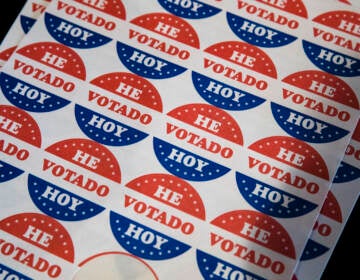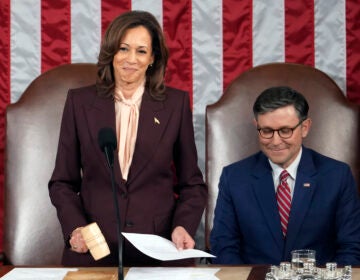Delaware gubernatorial candidate Bethany Hall-Long has taken $25,000 in donations that exceed legal limit
A review by WHYY News found that more than 30 donors have given Bethany Hall-Long more than the $1,200 allowed by law.
Listen 2:26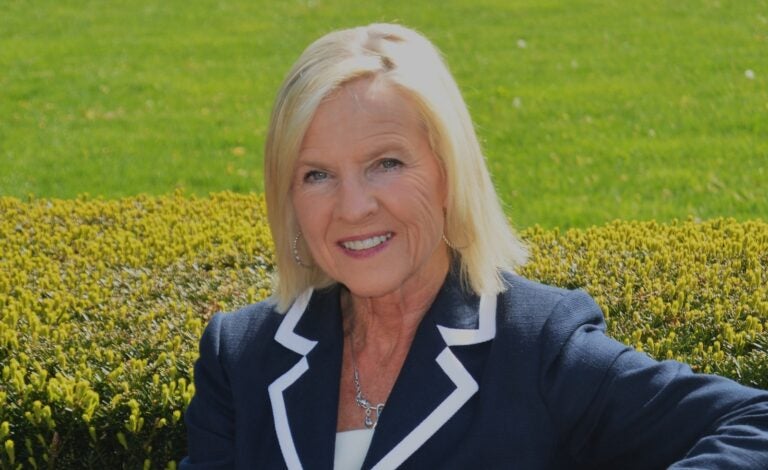
Lt. Gov. Bethany Hall-Long. (Bethany for Delaware)
What questions do you have about the 2024 elections? What major issues do you want candidates to address? Let us know.
This reporting was supported by a statehouse coverage grant from the Corporation for Public Broadcasting.
Delaware Lt. Gov. Bethany Hall-Long’s gubernatorial campaign has accepted tens of thousands of dollars in contributions from political action committees and individuals that exceed the $1,200-per-donor limit, WHYY News has found.
The donations Hall-Long has taken in violation of Delaware campaign law have come PACS as well as doctors, developers, lawyers and other supporters who have contributed to her since 2021.
WHYY News began scrutinizing Hall-Long’s campaign reports for 2021, 2022 and 2023 this month after receiving a tip about the excessive donations. The review found that more than 30 donors have given her more than $1,200 — excessive donations totaling roughly $25,000.
The revelation that Hall-Long has been accepting excessive donations is the second campaign finance issue to surface since she launched her candidacy to succeed Gov. John Carney in September. Days after her launch, Hall-Long’s campaign and finance managers, along with other staffers and volunteers, quit after discovering more than $200,000 in previously undisclosed payments to her husband and then-campaign treasurer Dana Long.
The controversy forced the lieutenant governor to suspend fundraising for several weeks and later to amend eight years of campaign reports. Hall-Long said in written statements that she had made sloppy record-keeping errors in failing to document more than $300,000 in loans that she — not her husband — had made to her campaigns for lieutenant governor.
Hall-Long resumed fundraising events in December, after promising that “going forward, our campaign reporting will be handled by experts in this field.”
WHYY News’ review of her campaign reports revealed, however, that several of the excessive contributions were accepted in December — after Hall-Long had promised to be more vigilant in overseeing finances.
Delaware law allows donors to contribute $1,200 to a statewide candidate during an election cycle. For Hall-Long, the current cycle encompasses the nearly four years since January 2021, when her second term as lieutenant governor started, and until the upcoming Sept. 10 Democratic primary.
The winner of the primary between Hall-Long, New Castle County Executive Matt Meyer, and former state environmental protection chief Collin O’Mara can accept an additional $1,200 from donors after Sept. 10, but not until then.
Making or accepting donations that exceed the legal limit is a criminal misdemeanor under Delaware law, but such offenses are rarely if ever prosecuted.
Hall-Long would not agree to an interview for this story but issued a statement that said she was refunding overpayments:
“Donations over the limit happen in many major federal and statewide campaigns across the country where they refund their donors. My campaign has procedures in place to address overages and we’ve taken those same steps to ensure refunds are issued accordingly which will be reflected in our upcoming campaign finance report.”
While Hall-Long’s statement dismissed the overpayments as a serious issue, her primary opponents have harsher words about yet another campaign finance problem that has surfaced.
Meyer, who led all three Democrats in fundraising when the latest reports were filed in January, said his campaign team had also found excessive donations in Hall-Long’s reports.
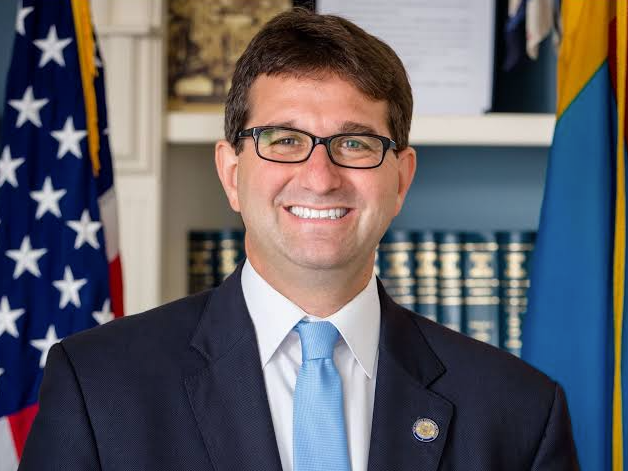
“If there are numerous and repeated illegal access contributions, it’s clear that when Bethany Hall-Long assured Delawareans that she’d taken a good hard look at her accounting, she was lying,’’ Meyer told WHYY News. “At best this is repeat negligent bookkeeping. And at worst, this is a coverup of criminal activity.”
“If Bethany Hall-Long cannot manage a few hundred thousand dollars in her campaign account, how is she going to manage $6 billion of our tax money — the annual budget of the state?”
O’Mara, the CEO of the National Wildlife Federation, wasn’t as strident as Meyer in his criticism but nevertheless called Hall-Long’s acceptance of so many excessive contributions “an egregious violation of the existing limits that have been in code’’ for decades.
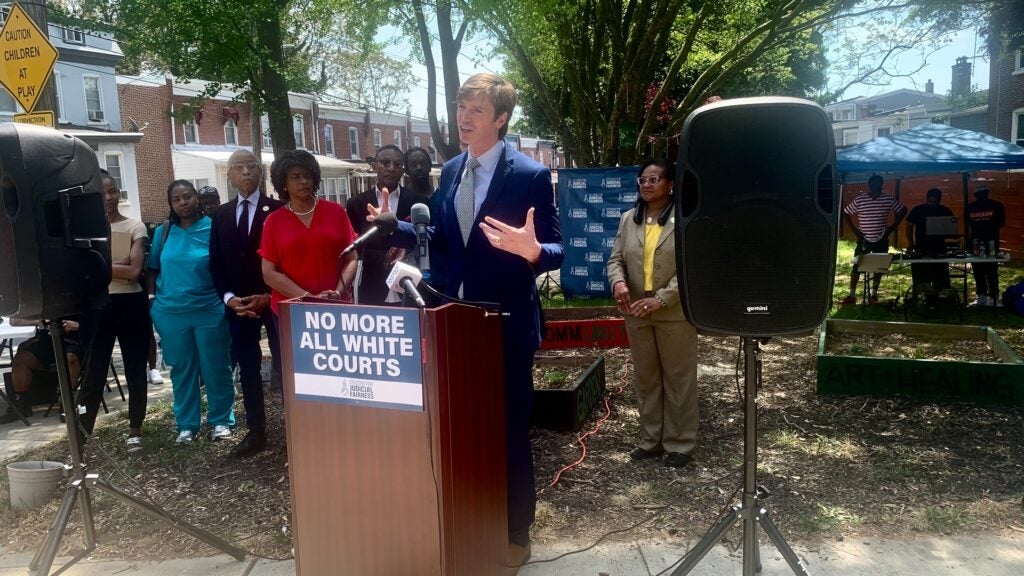
O’Mara, who headed the Department of Natural Resources and Environmental Control from 2009 to 2014 under then-Gov. Jack Markell, added that it’s clear to him that “Delaware’s campaign finance laws are increasingly not worth the paper they’re written on, especially if there’s no enforcement and no accountability.”
O’Mara said the next gubernatorial administration should “completely rewrite the entire campaign finance law with the General Assembly.”
State elections commissioner Anthony Albence did not respond to a request for comment on Hall-Long’s excessive donations. Albence also has not spoken publicly about the controversy over the previously undisclosed loans that the lieutenant governor reported late in 2023.
Unions for bricklayers and food workers gave 3 times the legal limit
WHYY News’ review found that when donors exceeded the legal limit of $1,200 for the election cycle, Hall-Long’s campaign usually didn’t report that the total amount contributed was higher than allowed.
For example, two labor organizations contributed $3,600 — three times the legal limit — but Hall-Long never reported that they had given more than $1,200 in “aggregate” during the election cycle.
One was the PAC Fund of the Bricklayers & Allied Craftworkers Local 1 of Pennsylvania and Delaware. The union PAC gave $1,200 to Hall-Long in December 2022 and wrote identical $1,200 checks in both May and December of 2023, according to Hall-Long’s reports.
WHYY News reached out repeatedly to the bricklayers’ union for comment, but received no response.
The United Food and Commercial Workers Local 27, based in Baltimore, also donated $3,600 in three $1,200 contributions — one in December 2022 and two in March 2023, according to Hall-Long’s reports. A total of $2,400 came from the union’s “Educational Fund.” An additional $1,200 came from the group’s “Active Ballot Education Fund.”
The UFCW’s Nelson Hill, who said he handles Delaware political donations, said the union sometimes makes “clerical errors” during election season and that he trusts campaigns to send refunds when overpayments occur.
Several others who gave excessive donations told WHYY News they were unaware they had done so, and would be seeking refunds.
One was Brian Disabatino, the CEO of the EDiS development company, who gave $1,800 to Hall-Long’s campaign. The EDiS company also gave $1,200, which is permitted under Delaware law.
Disabatino told WHYY News it was an accident that he was unaware of until notified about the disallowed $600 donation. He added that donors “look to the candidates for a little bit of guidance” so that they don’t exceed the limits.
Another was Lori Schell, whose husband Chris heads Schell Brothers, a developer of resort communities at the Sussex County beaches. Lori Schell gave $2,400 — double the legal limit. She did not respond to a request for comment, but an assistant to her husband said the campaign has promised to expeditiously refund the $1,200 “accidental overpayment.”
James Maravelias, president of the Delaware Building and Trades Council, whose PAC gave Hall-Long $2,400, acknowledged the union “overpaid’’ after he checked its records. “I am going to tell them to return it,” Maravelias said, later adding that he was promised a refund by Hall-Long’s campaign. “It’s $1,200 we could use somewhere else.”

Get daily updates from WHYY News!
WHYY is your source for fact-based, in-depth journalism and information. As a nonprofit organization, we rely on financial support from readers like you. Please give today.



